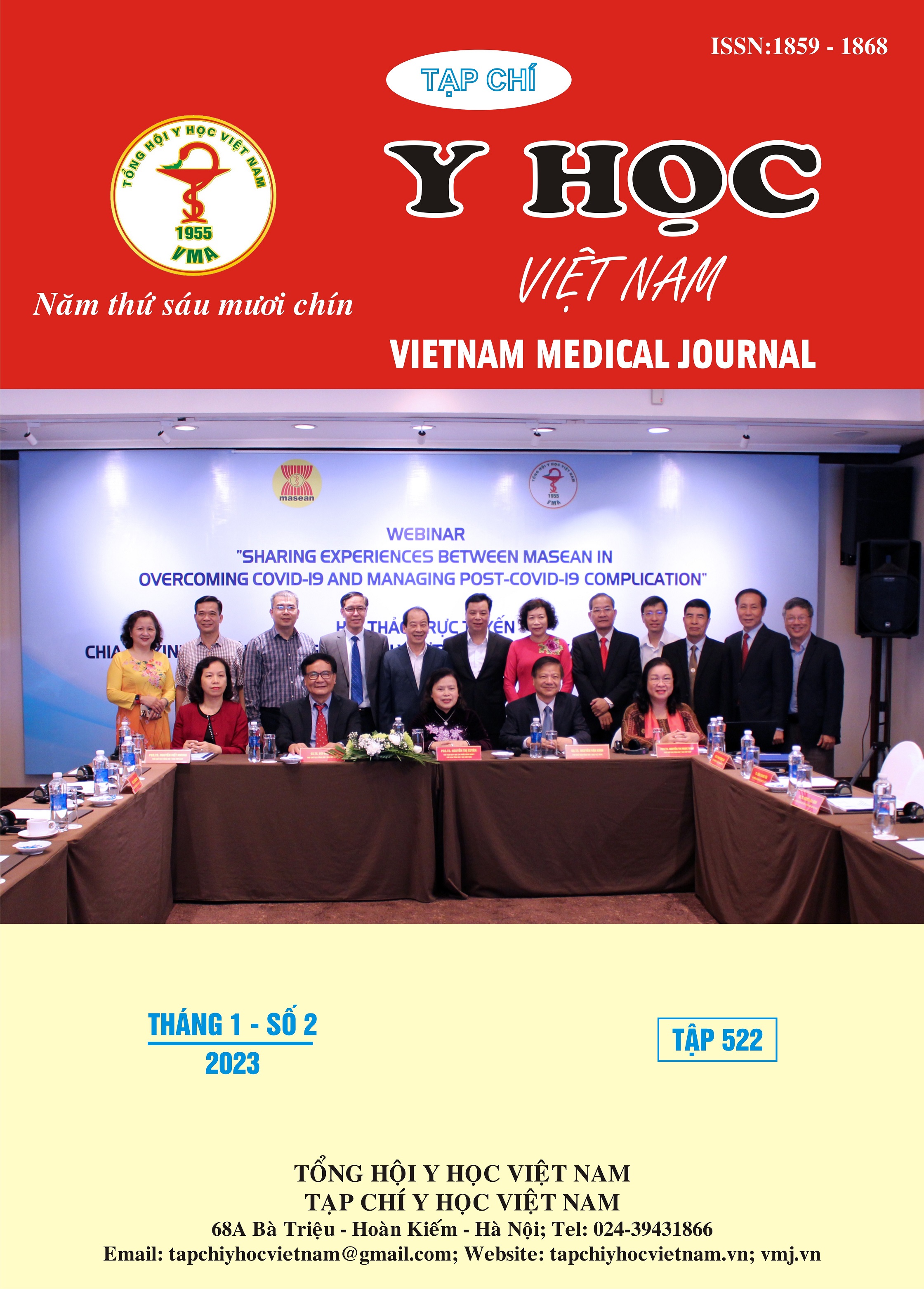SLEEP QUALITY AND RELATED FACTORS OF NURSING AT VINMEC HEALTHCARE SYSTEM
Main Article Content
Abstract
A cross-sectional descriptive study from January 2022 to October 2022 on 319 nurses working directly in clinical departments at Vinmec international general hospital chain with the aim of describing the situation and stress, quality sleep and learn the factors involved. The study used 3 sets of self-completed questionnaires PSQI to determine the status of sleep quality, Subscale Stress DASS 21 to determine the rate of Stress and ENSS to identify factors related to occupational stress in nurses at the Vinmec healthcare system. The results of the study showed that 197 nurses (62%) with poor sleep quality, the group with poor sleep quality PSQI > 5 had a higher risk of career-related stress than the group with average sleep quality. usually PSQI < 5 with mean ENSS scores (standard deviation) of 1.7 (0.46) and 1.5 (0.47), respectively. Logistic regression model of poor sleep quality of nurses results showed that nurses with a 1-point increase in the risk of occupational stress will increase the risk of having poor sleep quality by 1.92 times (OR: 1.92; 95). %CI: 1.07 – 3.47; p = 0.029). Nurses in the presence of stress were 3.51 times more likely to have poor sleep quality than in the non-stressed group (OR: 3.51; 95% CI: 1.75 – 7.03; p < 0.001), Hosmer-Lemeshow test = 0.482. The study recommends that there should be psychological and spiritual support programs and strategies for nurses directly taking care of patients, programs related to sleep hygiene should be widely conducted so that Improve the quality of sleep for nurses.
Article Details
References
2. Cho E, Chin DL, Kim S, Hong O. The Relationships of Nurse Staffing Level and Work Environment With Patient Adverse Events. J Nurs Scholarsh. Jan 2016;48(1):74-82. doi:10.1111/ jnu.12183
3. Deng X, Liu X, Fang R. Evaluation of the correlation between job stress and sleep quality in community nurses. Medicine (Baltimore). Jan 2020; 99(4):e18822. doi:10.1097/md.0000000000018822
4. Grossi G, Perski A, Osika W, Savic I. Stress-related exhaustion disorder--clinical manifestation of burnout? A review of assessment methods, sleep impairments, cognitive disturbances, and neuro-biological and physiological changes in clinical burnout. Scand J Psychol. Dec 2015;56(6):626-36. doi:10.1111/sjop.12251
5. Kunaviktikul W, Wichaikhum O, Nantsupawat A, et al. Nurses' extended work hours: Patient, nurse and organizational outcomes. Int Nurs Rev. Sep 2015;62(3):386-93. doi:10.1111/inr.12195
6. Li B, Li Z, Wan Q. Effects of work practice environment, work engagement and work pressure on turnover intention among community health nurses: Mediated moderation model. J Adv Nurs. Dec 2019;75(12):3485-3494. doi:10.1111/ jan. 14130
7. McDowall K, Murphy E, Anderson K. The impact of shift work on sleep quality among nurses. Occup Med (Lond). Dec 2 2017; 67(8): 621-625. doi:10.1093/occmed/kqx152
8. Trần Thị Thanh Hương. Chất lượng giấc ngủ bằng điều dưỡng lâm sàng tại Bệnh viện E năm 2014. Tạp chí y học dự phòng. 2014;(Tập XXV, số 6(166) 2015)


